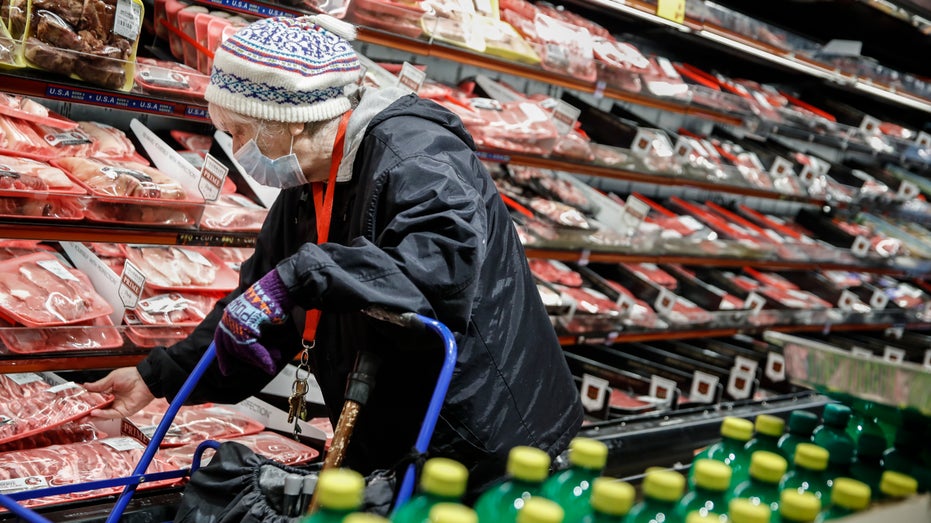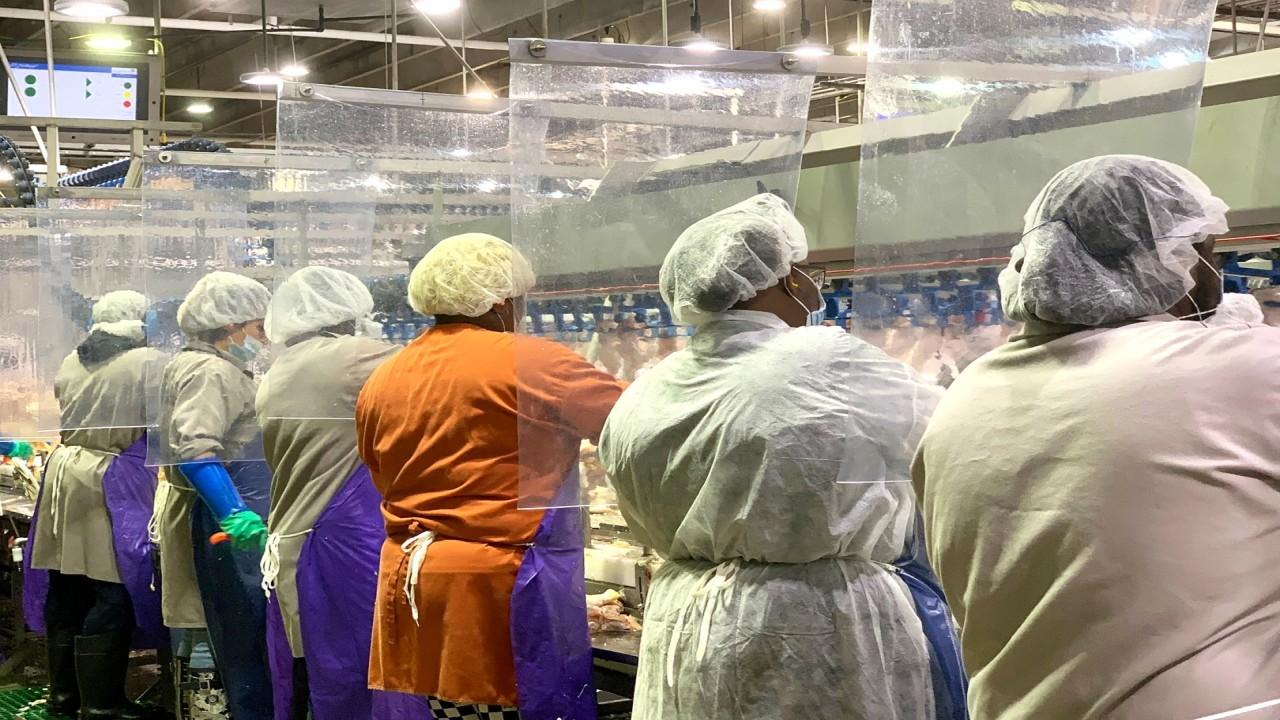Coronavirus spurred demand could lead to boneless chicken shortage
De-boning meat skipped to speed production
Get all the latest news on coronavirus and more delivered daily to your inbox. Sign up here.
Grocery store customers may find themselves putting cuts of meat they don't normally buy in their carts as producers adapt to changes in the supply chain brought by the coronavirus pandemic.
To keep up with demand, the poultry industry is shifting away from de-boning chicken legs to increase production capacity, according to Fortune.
Boneless chicken may be hardest to find although "the breast meat that would usually go to foodservice is more and more pivoting to go to supermarkets," a spokesperson for the National Chicken Council told FOX Business.
STOPPING CORONAVIRUS IN US MEAT PLANTS NEARLY IMPOSSIBLE, EXPERTS SAY
President Trump on Tuesday signed an executive order designed to keep meat processing plants operating under the Defense Production Act. Major producers Tyson Foods and Smithfield Foods expressed support for the order.
"We have ample supply, but there was a bottleneck caused by this whole pandemic, and it was potentially pretty serious," Trump said at the White House on Wednesday. "The big companies you’ve been reading about … we’ve solved their problems."

An elderly shopper wears personal protective equipment as she browses the meat section of a grocery store, Saturday, April 18, 2020, in the Harlem neighborhood of the Manhattan borough of New York. (AP Photo/John Minchillo)
Meat is not going to disappear from grocery store shelves, a Tyson spokesperson told FOX Business.
"Consumers may not get as many options from us as they have in the past, but they will still be able to find Tyson products on store shelves," a Tyson spokesperson told FOX Business. "Our expertise in protein — beef, chicken, pork and turkey — means we can be innovative and shift between these protein sources as needed."
| Ticker | Security | Last | Change | Change % |
|---|---|---|---|---|
| TSN | TYSON FOODS INC. | 65.26 | +0.06 | +0.09% |
Grocery stores may have to crack down on the number of meat products customers can buy at one time if they are not already, food supply chain expert Howard Dorman of consulting firm Mazars USA told FOX Business. Independent grocery stores and boutique shops may have a greater selection (but likely higher prices too) when supermarket supplies lag.
The situation may have been different had producers taken steps to protect workers from coronavirus earlier, Dorman said.
GET FOX BUSINESS ON THE GO BY CLICKING HERE
"Plants implementing safety procedures will slow down processing as well," Dorman said. "Should they have done this five weeks ago? Eight weeks ago? Yes, but the reality is we are where we’re at right now."




















